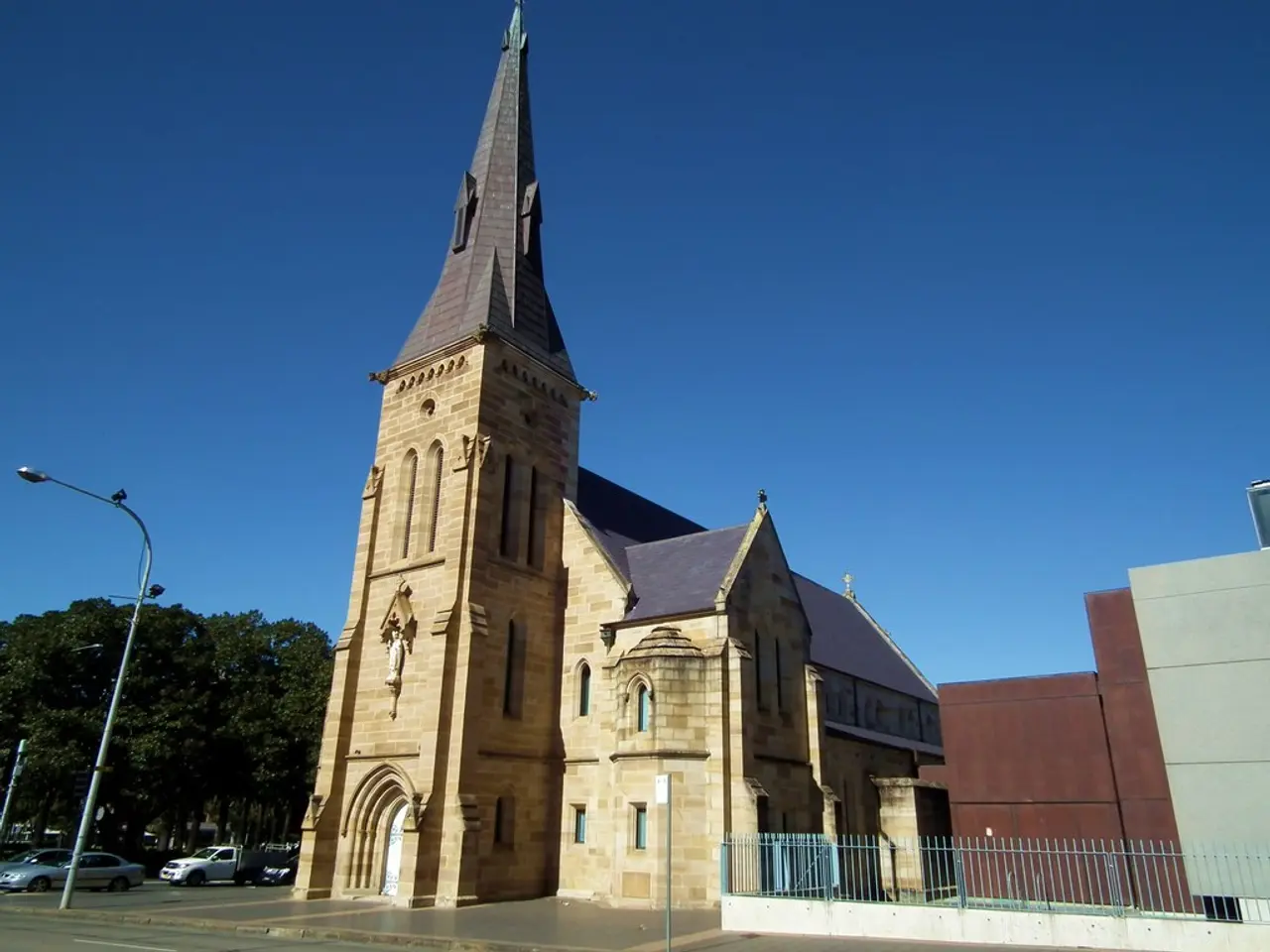Youth of Bulgaria Counter Apathy Through Environmental Activism
In the heart of Bulgaria, Sofia is undergoing a remarkable transformation as several innovative urban ecology projects take root, spearheaded by key figures dedicated to sustainable urban development and environmental restoration.
Martin Yankov, a prominent urban planner, is at the forefront of these initiatives. After studying in London, he returned to Sofia and founded the NGO Kolektivat ("The Collective"). Yankov's flagship project, "The Rivers of the City," aims to revitalize and protect the numerous small rivers flowing down from Vitosha Mountain into Sofia. These waterways serve as natural air corridors, mitigating pollution trapped by the surrounding mountains. Despite their ecological importance, they have been largely neglected. Yankov's vision focuses on restoring these streams and their green surroundings to improve urban air quality and biodiversity. Kolektivat works independently but cooperates with the city council and secures diversified funding, including private sources.
Sofia is also involved in broader sustainability efforts such as solid waste management modernization. In May 2025, a technical deep dive on circular economy and waste management was held in Sofia, showcasing advanced treatment plants, including mechanical-biological treatment, composting, and recycling facilities. These initiatives address urban waste and resource management challenges through innovative public-private partnerships and technical solutions.
The city is also participating in the "BeReady" project to combat urban heat islands by creating climate refuges through participative approaches involving local communities and stakeholders. This project, supported by the Interreg Danube Region Programme, fosters regional cooperation for greener, climate-resilient urban areas and has engaged numerous partners and citizens across multiple countries.
Events such as the Green Transition Forum 5.0, held in Sofia in June 2025, bring together policymakers, business leaders, and climate experts to discuss green innovation, climate adaptation, and urban resilience strategies. This forum highlights Sofia’s role as a hub for advancing sustainable urban development and ecological transition, with focus areas including financing adaptation, public-private collaboration, and engaging local communities in co-creating resilient cities.
These initiatives reflect a comprehensive approach to ecological urban innovation in Sofia, integrating natural ecosystem restoration, circular economy practices, climate resilience, and community engagement under the leadership of dedicated professionals like Martin Yankov and through partnerships supported by EU programs and local authorities. Other key figures include Aneliya K., who is part of a collective fighting to preserve the city's last natural wetland, the Boyana marsh, and Svetoslav Aleksandrov, who plans to transform the residential area of Krasna Polyana into a 32-kilometer cycle and pedestrian ring road.
The transformation of Sofia is not just about infrastructure, but also about preserving its unique character. Slava Savova, for instance, is developing artistic projects, notably on the issue of post-industrial heritage, and is dreaming of an eco-park that would combine the preservation of nature with the enhancement of Kremikovtsi’s industrial and human heritage. Nikola Bonchev, after studying history in Vienna, returned to Sofia in 2013 and got involved in the activities of an anarchist social centre, leading a reflection on self-sufficiency and the right to land. He ended up with a large plot of land on the edge of the Drujba district, which used to belong to the organisation that ran the town's markets during socialism. The vegetable garden in Drujba district, run by over 80 people, is only at the beginning of the season, but in summer it is a wonderful place with tomato and pepper plants, green salads, aromatic herbs, fruit trees in blossom, and no centralised organisation, which has strengthened the bond that people have with the place.
In conclusion, Sofia is on a journey towards a greener and more sustainable future. With the efforts of dedicated individuals and the support of local and international partnerships, the city is transforming its urban landscape, preserving its cultural heritage, and creating spaces for community engagement and ecological restoration.
- Martin Yankov, an urban planner who studied in London and founded the NGO Kolektivat in Sofia, is spearheading initiatives to revitalize and protect the city's numerous small rivers as part of his project, "The Rivers of the City."
- In addition to waterway restoration, Sofia is also focusing on modernizing solid waste management through innovative public-private partnerships and technical solutions, as demonstrated by its advanced treatment plants.
- The city is part of the "BeReady" project, which aims to combat urban heat islands by creating climate refuges through participative approaches involving local communities and stakeholders.
- Events like the Green Transition Forum 5.0 in Sofia bring together policymakers, business leaders, and climate experts to discuss green innovation, climate adaptation, and urban resilience strategies.
- The transformation of Sofia's urban landscape is not just about infrastructure, but also about preserving its unique character, as seen in artistic projects like Slava Savova's eco-park idea for Kremikovtsi’s industrial and human heritage.




